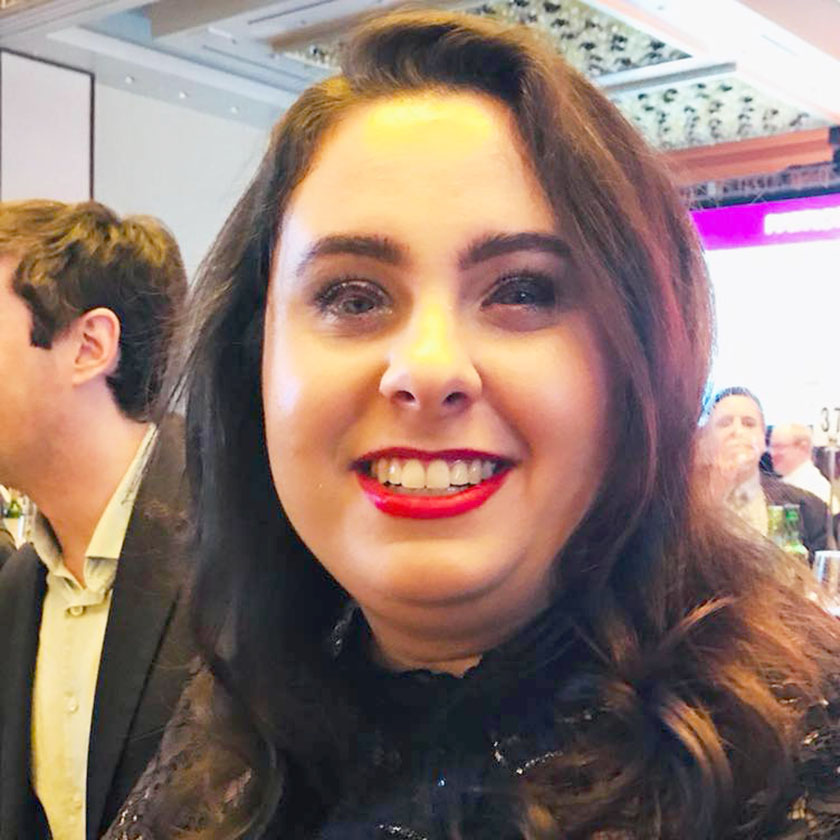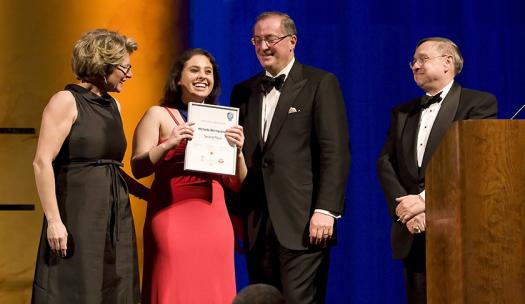From science research to the Wall Street Journal

Michelle Hackman has always had an interest in a variety of fields. In high school, she competed in the Intel Science Talent Search and placed second overall. Michelle’s project, cited in many national publications, examined how our relationships with our smartphones resemble addicts and their devotion to drugs. Her achievements and research, on a topic that still holds attention today, led to a story in the Wall Street Journal titled “When Separated from Cellphones, Teens Get Very Sleepy.”
Now Michelle is the one who is doing the writing.
As a journalist at the Wall Street Journal’s Washington bureau, Michelle primarily writes about the Department of Education and national education policy. Her work has appeared in a myriad of publications, including Vox, Nieman Reports, WSHU Public Radio, and the Pittsburgh Post-Gazette.
Although Michelle studied psychology at Yale University, she soon found herself spending more and more time at her college newspaper, the Yale Daily News. During college, she said, it became clear that she was more excited by the fast-paced temperament and public-facing work of the paper than psychology.
“It was a split life at Yale,” Michelle said. “I thought I could either go into journalism or be a research professor in psychology.” In addition to being a reporter and editor at the Yale Daily News, Michelle joined Hedy Kober’s Clinical & Affective Neuroscience Lab, which focused on addiction. Michelle explained that she thought she would be able to use that opportunity to extend her Science Talent Search research.
“I wasn’t there long enough because the college paper pulled me away,” Michelle explained. “I’d never really thought of myself as a science person — but I found that the tools of science appealed to my sensibilities, like designing an experiment and using statistics to tell a story,” she added.

Michelle continues to explore human behavior through journalism, but still uses some of the skills she gained through science. In a 2015 story for The New Haven Independent, for example, Michelle profiled a young man sentenced to 50 years in prison at a young age, addressing ethical and scientific questions surrounding the incarceration of youth for long sentences. She integrated questions in forensic psychiatry such as: Should society be turning to modern developments in neuroscience when making legal decisions?
Through journalism, Michelle said she’s been able to effectively intertwine many of her interests into a passionate career that informs the public.
She has recently started learning Chinese. “I’d love to report abroad some day and figure I need some kind of marketable skill if I try,” Michelle says.
Currently, Michelle is working on a story focused on what happens when the government creates policies barring schools from disciplining minority students at higher rates than their white peers. Additionally, she is considering a series discussing the implications of high schools incorporating technical education, such as advanced manufacturing, into their curricula. Michelle said she’s also interested in the question of how science education could be improved by the federal government.
Michelle said she is in her element as a journalist noting that she feels that the immediacy of journalism offers her the ability to inform and do it fairly quickly. She works well on shorter time frames and on deadline.
“I get antsy. The thing I love so much about my job is that it doesn’t really feel like one — I get to do what I love, which is talking to lots of people and finding ways to tell stories,” Michelle said. “Of course those stories have to be true, which is the fun challenge — a little like science. You might have a cool hunch but it’s all the more exhilarating if it’s true.”


